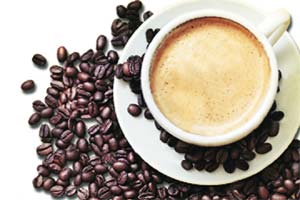India’s coffee exports have remained flat at 301,647 tonne for the 2014-15 season starting October, compared to 303,250 tonne in the previous crop year. The stagnation in coffee bean exports is largely attributed to lower domestic production and decline in international prices.
Though coffee is harvested between November and January, the crop year starts from October and ends in September. Exporters in India not just depend on the domestic crop, but also import and re-export after value addition.
In value terms, Indian exporters earned R5,160 crore in 2014-15 compared to R4,920 crore, showing a rise of 4.8%. In dollar terms, export earnings grew marginally to $817 million as against $807 million, a growth of 1.2%. The unit value realisation went up 5.4% to R171,065 per tonne as against R162,255 per tonne in the previous year, according to data available with the Coffee Board.
“Apart from lower crop and decline in international prices during the most part of the year, exporters also suffered due to reduction in export benefit by 2% under Vishesh Krishi and Gram Udyog Yojana (VKGUY) announced in the Foreign Policy 2015. This led to slowdown in exports from April-June quarter. However, exports were on expected lines as we had to adjust with the low international prices,” said Ramesh Rajah, president, Coffee Exporters’ Association.
However, the export performance was still better during the year considering the decline in overseas prices to the extent of 20% on New York terminal. During the January-March quarter, bean prices witnessed downward trend with Arabica prices declining by 30% to touch 125 cents per lb (pound) compared to 180 cents per lb in October 2014. Currently, bean prices are ruling at 120 cents per lb (pound).
The news of improved weather in Brazil added to the selling pressure. The market is expecting Brazil to harvest a bumper crop in May 2016, which has further cast a shadow on global prices.
Farm gate prices in Karnataka, which contributes 70% of India’s coffee output, have crashed by 24% since early January. Arabica parchment is currently sold at R8,000 per bag (each bag has 50 kg) from R10,500 per bag in January this year. Similarly, robusta prices declined 26% to R5,000 per bag.
“We expect Indian bean prices to drop another 10% in the coming days as the domestic crop is also likely to be bigger than last year. Overall, tough days are ahead for coffee growers in 2016,” Rajah added.


